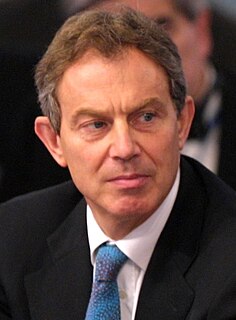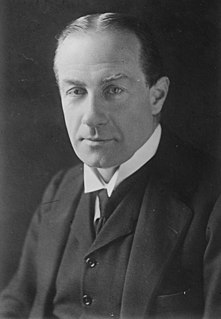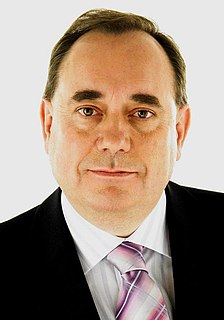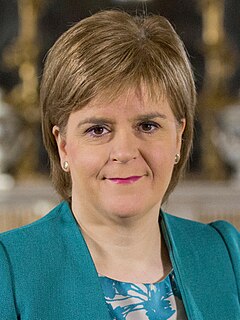This is a list of the British Conservative Party general election manifestos since 1900. From 1900 to 1945, the Conservative Party general election manifesto was usually published as a form of a short personal address by the leader of the party. From 1950 the party published a more formal document.
| Election | Leader | Election winner | Manifesto title | Link to text |
|---|---|---|---|---|
| 2019 | Boris Johnson | Conservative | Get Brexit Done: Unleash Britain's Potential | |
| 2017 | Theresa May | Hung (Conservative with DUP confidence & supply) | Forward, Together: Our Plan for a Stronger Britain and a Prosperous Future | |
| 2015 | David Cameron | Conservative | Strong Leadership. A Clear Economic Plan. A Brighter, More Secure Future. | |
| 2010 | David Cameron | Hung (Conservative-led coalition) | Invitation to Join the Government of Britain | |
| 2005 | Michael Howard | Labour | Are You Thinking What We're Thinking? | |
| 2001 | William Hague | Labour | Time for Common Sense | |
| 1997 | John Major | Labour | You Can Only Be Sure with the Conservatives | |
| 1992 | John Major | Conservative | The Best Future for Britain | |
| 1987 | Margaret Thatcher | Conservative | The Next Moves Forward | |
| 1983 | Margaret Thatcher | Conservative | The Challenge of Our Times | |
| 1979 | Margaret Thatcher | Conservative | 1979 Conservative Party General Election Manifesto | |
| October 1974 | Edward Heath | Labour | Putting Britain First | |
| February 1974 | Edward Heath | Hung (Labour) | Firm Action for a Fair Britain | |
| 1970 | Edward Heath | Conservative | A Better Tomorrow | |
| 1966 | Edward Heath | Labour | Action Not Words: The New Conservative Programme | |
| 1964 | Alec Douglas-Home | Labour | Prosperity with a Purpose | |
| 1959 | Harold Macmillan | Conservative | The Next Five Years | |
| 1955 | Anthony Eden | Conservative | United for Peace and Progress | |
| 1951 | Winston Churchill | Conservative | 1951 Conservative Party General Election Manifesto | |
| 1950 | Winston Churchill | Labour | This Is the Road | |
| 1945 | Winston Churchill | Labour | Winston Churchill's Declaration of Policy to the Electors | |
| 1935 | Stanley Baldwin | National Government | A Call to the Nation | |
| 1931 | Stanley Baldwin | National Government | The Nation's Duty | |
| 1929 | Stanley Baldwin | Hung (Labour) | Stanley Baldwin's Election Address | |
| 1924 | Stanley Baldwin | Conservative | Stanley Baldwin's Election Address | |
| 1923 | Stanley Baldwin | Hung (Labour) | Stanley Baldwin's Election Address | |
| 1922 | Bonar Law | Conservative | Andrew Bonar Law's Election Address | |
| 1918 | Bonar Law | Hung (Conservative-dominated coalition) | The Manifesto of Lloyd George and Bonar Law | |
| December 1910 | Arthur Balfour | Hung (Liberal with Irish Nationalist support) | Arthur Balfour's Election Address | |
| January 1910 | Arthur Balfour | Hung (Liberal with Irish Nationalist support) | Arthur Balfour's Election Address | |
| 1906 | Arthur Balfour | Liberal | Arthur Balfour's Election Address | |
| 1900 | Lord Salisbury | Conservative | The Manifesto of the Marquess of Salisbury |

The 1997 United Kingdom general election was held on 1 May 1997. The governing Conservative Party led by Prime Minister John Major was defeated in a landslide by the Labour Party led by Tony Blair, achieving a 179 seat majority.

The October 1974 United Kingdom general election took place on Thursday 10 October 1974 to elect 635 members of the British House of Commons. It was the second general election held that year, the first year that two general elections were held in the same year since 1910, and the first time that two general elections were held less than a year apart from each other since the 1923 and 1924 elections, which took place 10 months apart. The election resulted in the Labour Party led by Harold Wilson winning a bare majority of just 3 seats. This enabled the remainder of the Labour government, 1974–1979 to take place, which saw a gradual loss of its majority.

The 1945 United Kingdom general election was a national election held on 5 July 1945, but polling in some constituencies was delayed by some days, and the counting of votes was delayed until 26 July to provide time for overseas votes to be brought to Britain. The governing Conservative Party sought to maintain its position in Parliament but faced challenges from public opinion about the future of the United Kingdom in the post-war period. British Prime Minister Winston Churchill proposed to call for a general election in Parliament, which passed with a majority vote less than two months after the conclusion of the Second World War in Europe.

The 1950 United Kingdom general election was the first ever to be held after a full term of Labour government. The election was held on Thursday 23 February 1950, and was the first held following the abolition of plural voting and university constituencies. The government's 1945 lead over the Conservative Party shrank dramatically, and Labour was returned to power but with an overall majority reduced from 146 to just 5. There was a 2.8% national swing towards the Conservatives, who gained 90 seats. Labour called another general election in 1951, which the Conservative Party won.

The 1951 United Kingdom general election was held twenty months after the 1950 general election, which the Labour Party had won with a slim majority of just five seats. The Labour government called a snap election for Thursday 25 October 1951 in the hope of increasing its parliamentary majority. However, despite winning the popular vote and achieving both the highest-ever total vote and highest percentage vote share, Labour won fewer seats than the Conservative Party. This election marked the return of Winston Churchill as Prime Minister, and the beginning of Labour's thirteen-year spell in opposition. This was the third and final general election to be held during the reign of King George VI, for he died the following year on 6 February and was succeeded by his daughter, Elizabeth II. It is also the most recent election in which the Conservatives have done better in Scotland than in England.

The 1959 United Kingdom general election was held on Thursday, 8 October 1959. It marked a third consecutive victory for the ruling Conservative Party, now led by Harold Macmillan. For the second time in a row, the Conservatives increased their overall majority in Parliament, this time to a landslide majority of 100 seats, having gained 20 seats for a return of 365. The Labour Party, led by Hugh Gaitskell, lost 19 seats and returned 258. The Liberal Party, led by Jo Grimond, again returned only six MPs to the House of Commons, but managed to increase its overall share of the vote to 5.9%, compared to just 2.7% four years earlier.

The 1935 United Kingdom general election was held on Thursday 14 November 1935 and resulted in a large, albeit reduced, majority for the National Government now led by Stanley Baldwin of the Conservative Party. The greatest number of members, as before, were Conservatives, while the National Liberal vote held steady. The much smaller National Labour vote also held steady but the resurgence in the main Labour vote caused over a third of their MPs, including National Labour leader Ramsay MacDonald, to lose their seats.

The 1924 United Kingdom general election was held on Wednesday 29 October 1924, as a result of the defeat of the Labour minority government, led by Ramsay MacDonald, in the House of Commons on a motion of no confidence. It was the third general election to be held in less than two years. Parliament was dissolved on 9 October.

The 1923 United Kingdom general election was held on Thursday 6 December 1923. The Conservatives, led by Stanley Baldwin, won the most seats, but Labour, led by Ramsay MacDonald, and H. H. Asquith's reunited Liberal Party gained enough seats to produce a hung parliament. It is the most recent UK general election in which a third party won over 100 seats. The Liberals' percentage of the vote, 29.7%, has not been exceeded by a third party at any general election since.

The 1922 United Kingdom general election was held on Wednesday 15 November 1922. It was won by the Conservative Party, led by Bonar Law, which gained an overall majority over the Labour Party, led by J. R. Clynes, and a divided Liberal Party.

The December 1910 United Kingdom general election was held from 3 to 19 December. It was the last general election to be held over several days and the last to be held before the First World War.

The 1900 United Kingdom general election was held between 26 September and 24 October 1900, following the dissolution of Parliament on 25 September. Also referred to as the Khaki Election, it was held at a time when it was widely believed that the Second Boer War had effectively been won.

The Welsh devolution referendum of 1997 was a pre-legislative referendum held in Wales on 18 September 1997 over whether there was support for the creation of a National Assembly for Wales, and therefore a degree of self-government. The referendum was a Labour manifesto commitment and was held in their first term after the 1997 election under the provisions of the Referendums Act 1997. This was the second referendum held in Wales over the question of devolution: the first referendum was held in 1979 and was defeated by a large majority.

The 2005 United Kingdom general election was held on Thursday 5 May 2005, to elect 646 members to the House of Commons. The Labour Party, led by Tony Blair, won its third consecutive victory, with Blair becoming the second Labour leader after Harold Wilson to form three majority governments. However, its majority fell to 66 seats compared to the 167-seat majority it had won four years before. This was the first time the Labour Party had won a third consecutive election, and remains the party's most recent general election victory.

The 2011 Scottish Parliament election was held on Thursday, 5 May 2011 to elect 129 members to the Scottish Parliament.

The 2019 United Kingdom general election was held on Thursday, 12 December 2019. It resulted in the Conservative Party receiving a landslide majority of 80 seats. The Conservatives made a net gain of 48 seats and won 43.6% of the popular vote – the highest percentage for any party since 1979.

A general election was held in the United Kingdom on Thursday 8 June 2017; all 59 seats in Scotland were contested under the first-past-the-post electoral system.